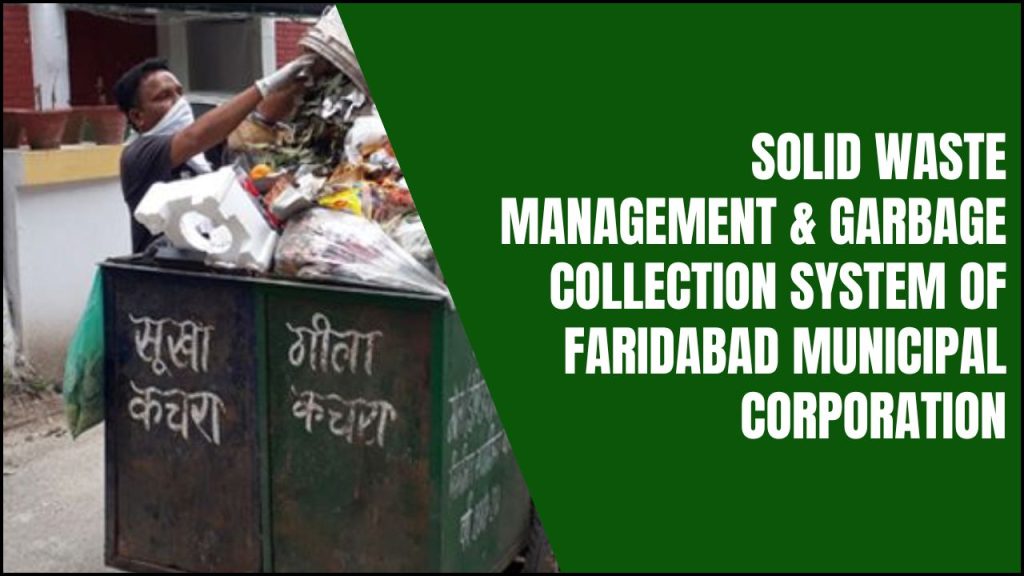Solid waste management plays an important role in maintaining cleanliness and hygiene in any city. Faridabad Municipal Corporation (FMC) handles the task of managing solid waste and collecting garbage in the city. Faridabad is one of the major cities in Haryana and has a growing population. Rapid urbanization has increased the amount of solid waste generated daily. Efficient systems are needed to deal with the waste and to keep the environment safe. Faridabad Municipal Corporation has introduced various measures and plans to improve the system.
Advertisement
Waste Generation in Faridabad
Faridabad generates around 1,000 to 1,200 metric tons of waste daily.
Residential areas contribute the maximum amount of solid waste.
Commercial zones, industrial areas, and public spaces also add a large portion.
An increase in population and industrial growth has led to higher waste production.
Source of Waste Approximate Contribution Households 55% Commercial areas 20% Industrial units 15% Hotels & restaurants 5% Other sources 5%
Types of Waste Collected
Solid waste includes different types of garbage from various sources.
Segregation helps in recycling and the proper disposal of waste.
Type of Waste Description Biodegradable Food scraps, vegetable peels, garden waste Non-biodegradable Plastics, glass, metals, old clothes Hazardous waste Batteries, chemicals, e-waste Construction debris Bricks, cement pieces, tiles Biomedical waste Waste from clinics and hospitals
Garbage Collection System
Faridabad Municipal Corporation uses a door-to-door collection system.
Private contractors and sanitation workers collect the waste.
Vehicles used for collection are fitted with GPS trackers.
The collection is usually done early in the morning.
Activity Details Door-to-door collection Daily in residential areas Collection vehicles Auto-tippers, compactors, dumper placers GPS tracking Installed in vehicles for monitoring Sweeping of roads Manual and mechanical methods used Waste bins in public areas Placed at key locations
Waste Segregation
Residents are encouraged to segregate waste at the source.
Two-bin system is promoted for easy separation.
Green bins are for wet waste, and blue bins are for dry waste.
Awareness programs are conducted to educate people about segregation.
Bin Color Type of Waste Examples Green Biodegradable waste Food leftovers, garden waste Blue Dry waste Plastic, paper, glass
Transportation and Transfer Stations
Collected waste is transported to transfer stations.
Waste is compacted at these stations before final disposal.
Vehicles unload the waste here, and larger trucks carry it to disposal sites.
Location of Transfer Stations Function Sector 23 Waste collection & transfer Old Faridabad area Temporary storage Ballabgarh region Compaction and sorting
Waste Disposal and Treatment
Final disposal takes place at designated landfill sites.
Landfill sites are located outside the main city area.
Faridabad Municipal Corporation is planning scientific landfilling methods.
Composting and waste-to-energy plants are being considered.
Disposal Method Description Landfilling Dumping in secured landfill areas Composting Conversion of organic waste to manure Incineration Burning of non-recyclable waste Waste-to-energy plants Under planning for future setup
Challenges in Solid Waste Management
Overpopulation leads to more garbage generation.
Lack of proper segregation at the source is a major issue.
Informal rag pickers work without safety or organization.
Public awareness is still limited in many parts of the city.
Traffic and narrow roads slow down the garbage collection process.
Steps Taken by Faridabad Municipal Corporation
Implementation of Swachh Bharat Mission guidelines.
Use of modern technology like GPS and mobile apps.
Regular training of sanitation staff.
Set up of grievance redressal helplines for complaints.
Introduction of fines for littering and non-segregation.
Initiative Outcome GPS tracking system Improved route planning & monitoring Public awareness campaigns Better participation from citizens Solid Waste Management Rules Enforced for better discipline Sanitation worker uniforms Provided for safety and identification Complaint redressal helpline Quick response to citizen complaints
Role of Public Participation
Citizens are responsible for waste segregation and proper disposal.
Active involvement can reduce pressure on municipal staff.
Local Resident Welfare Associations (RWAs) play a key role.
Schools and colleges conduct awareness drives.
Public Action Benefit Use of separate bins Easier recycling and disposal Avoidance of plastic bags Reduction in plastic waste Participation in clean-up drives Cleaner streets and parks Reporting of illegal dumping Helps authorities take timely action
Future Plans and Suggestions
Faridabad Municipal Corporation aims to make the city 100% garbage-free.
New waste processing plants are being planned.
Digital platforms for monitoring and feedback will be improved.
Incentives may be offered for waste segregation efforts.
More private companies may be involved under the PPP model.
Key Takeaways
Solid waste management is a shared responsibility between citizens and the government.
Faridabad Municipal Corporation has made progress in collection and disposal systems.
More improvements are required to handle the increasing urban waste.
Sustainable practices, modern technology, and public support are the keys to success.
A cleaner Faridabad depends on strong cooperation and regular efforts by all.
Katherine Johnson is a passionate writer with a keen interest in storytelling, content creation, and creative expression. She enjoys exploring diverse topics and crafting engaging narratives that captivate readers.





